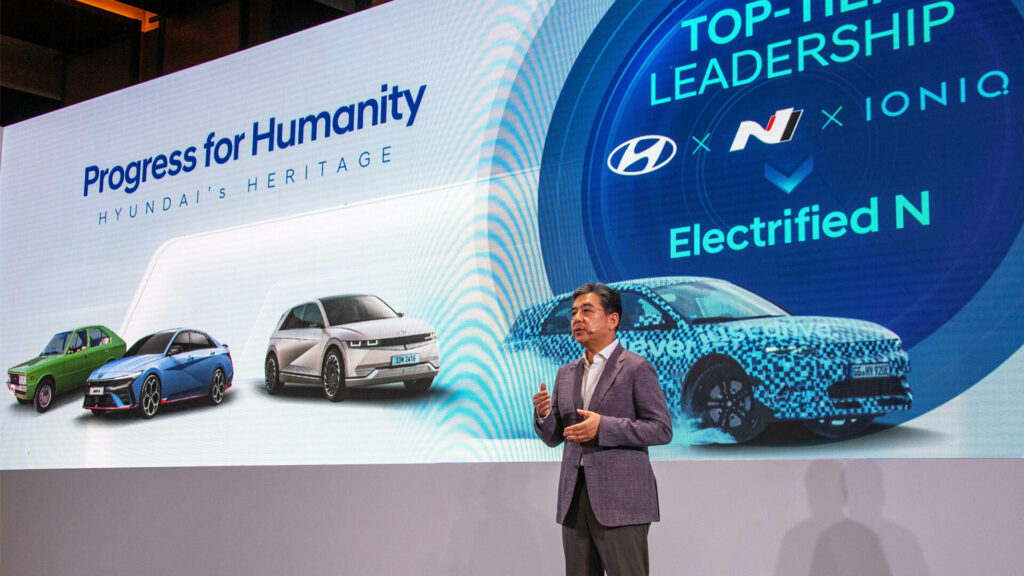Hyundai used its CEO Investor Day to reveal an assortment of new details about their electrification plans, both short and long term.
While there’s a lot to cover, the automaker aims to accelerate its transition into a “smart mobility solution provider” by investing $84.9 (£66.6 / €77.8) billion over the course of the next ten years. Of that, $27.8 (£21.8 / €25.5) billion will be poured into electrification and this is expected to enable the automaker to sell two million EVs annually by 2030.
The strategy is known as “Hyundai Motor Way” and it’s focused on electric vehicles as the company wants to establish “leadership in EVs.” A big part of this push relies on their second-generation EV platform, which is known as the Integrated Modular Architecture (IMA). It will replace the current Electric-Global Modular Platform (E-GMP) and be used on “13 new dedicated EV models from Hyundai Motor Group’s automotive brands Hyundai, Kia and Genesis through 2030.”
More: Hyundai Motor Group Accelerates Electric Push With $18B Investment, Aims To Have 31 EVs By 2030
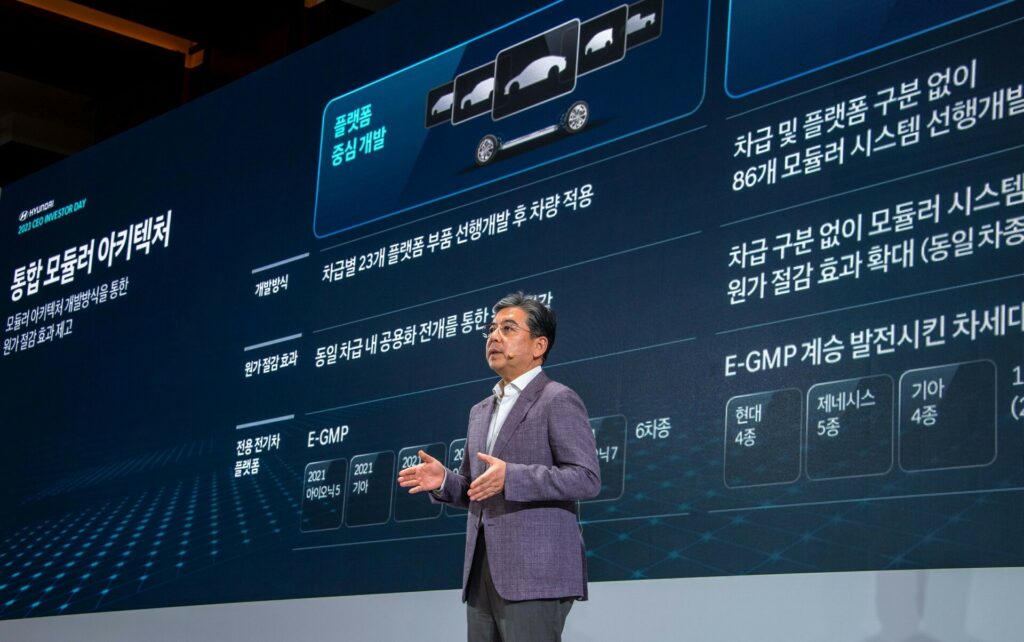
Hyundai says the IMA platform is a “significant advancement” over E-GMP and will enable “maximum cost reduction through economies of scale.” As the automaker explained, “Over 80 common modules can be utilized across different segments, irrespective of vehicle type, allowing for versatile combinations. This breakthrough allows for greater flexibility and efficiency in the development process, paving the way for significant cost savings.”
The IMA platform will be highly flexible and enable the automaker to expand beyond the current crop of mid-size SUVs. In particular, the company said the architecture “encompasses nearly all vehicle classes, ranging from small and large SUVs to pickup trucks, along with the flagship models of the Genesis brand.”
Thanks to the aforementioned improvements, Hyundai is targeting more than 10 percent profitability for EVs in 2030 thanks, in part, to cost reductions and high-margin derivatives.
New And Improved Batteries Inbound
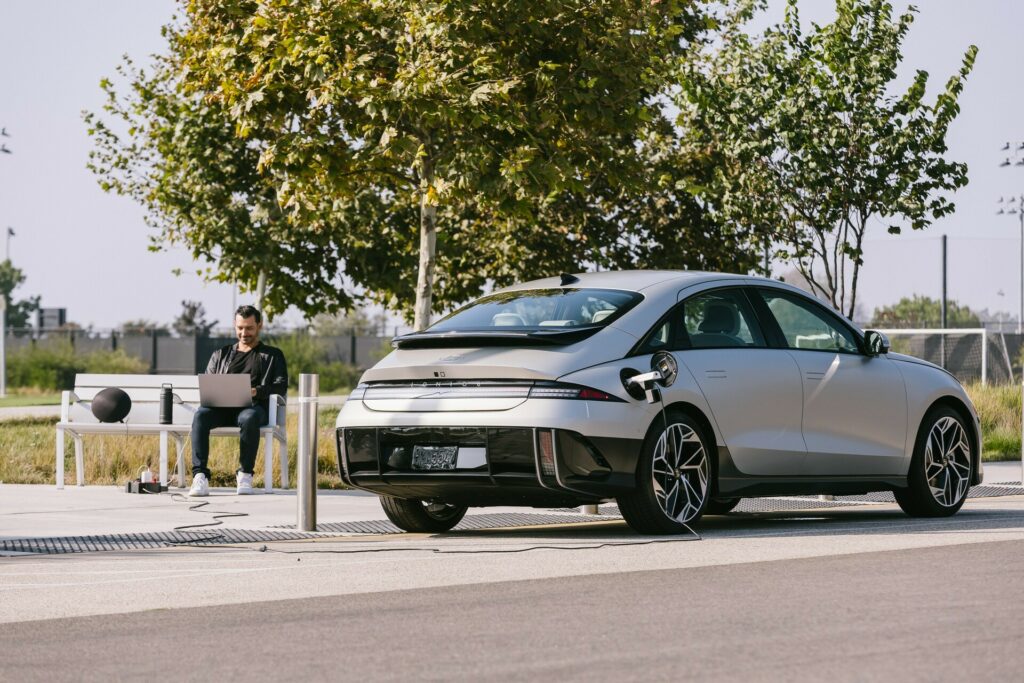
While platforms are important, batteries are critical when it comes to electric vehicles. On this front, Hyundai plans to offer an assortment of “solutions” including next-generation NCM (Nickel Manganese Cobalt) and LFP (Lithium Iron Phosphate) batteries for models based on the IMA platform. Speaking of LFP batteries, the company aims to introduce units with “increased energy density and improved low-temperature efficiency for the first time around 2025.”
Hyundai also briefly mentioned a “cutting-edge technology that enables battery charging and discharging while driving, utilizing an independent power bank.” The automaker also brought up an AI-based battery management system, which monitors the battery pack and identifies any potential safety problems.
Longer term, the company is working with partners on solid-state and lithium metal batteries. These promise to be game changing and Toyota recently hinted at a solid-state battery with up to 932 miles (1,500 km) of range.
Dedicated EV Plants And Increased Localization
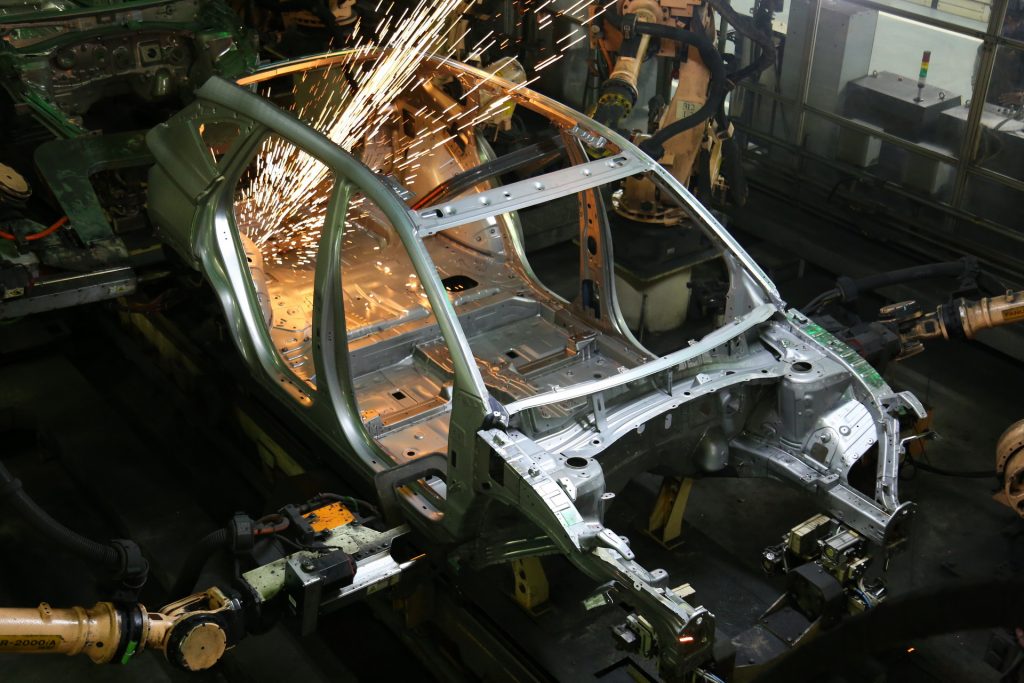
Hyundai noted demand for ICE vehicles remains high, so they’re building EVs on “mixed production lines.” However, the automaker expects the proportion of global EV production to jump from 8% this year to 34% in 2030.
That would be a drastic change and Hyundai plans to address it with a “two-track approach of line conversion in ICE factories and new dedicated EV plant establishment.” Speaking of the latter, Hyundai’s first dedicated EV factory is under construction in Georgia and is slated to come online in the second half of 2024. Once the facility fully ramps up, it will have a production capacity of 300,000 vehicles annually.
Hyundai is also working to establish a dedicated EV factory in Korea and it aims to begin mass production in 2025. It will produce vehicles for both domestic and international markets.
Furthermore, the automaker is expecting to significantly increase localization. That’s especially true in the United States where the company aims to increase the localization rate from 0.7% to 75%. That’s a huge increase and Europe will see a smaller localization jump from 7% to 54%.
Cutting Back In China
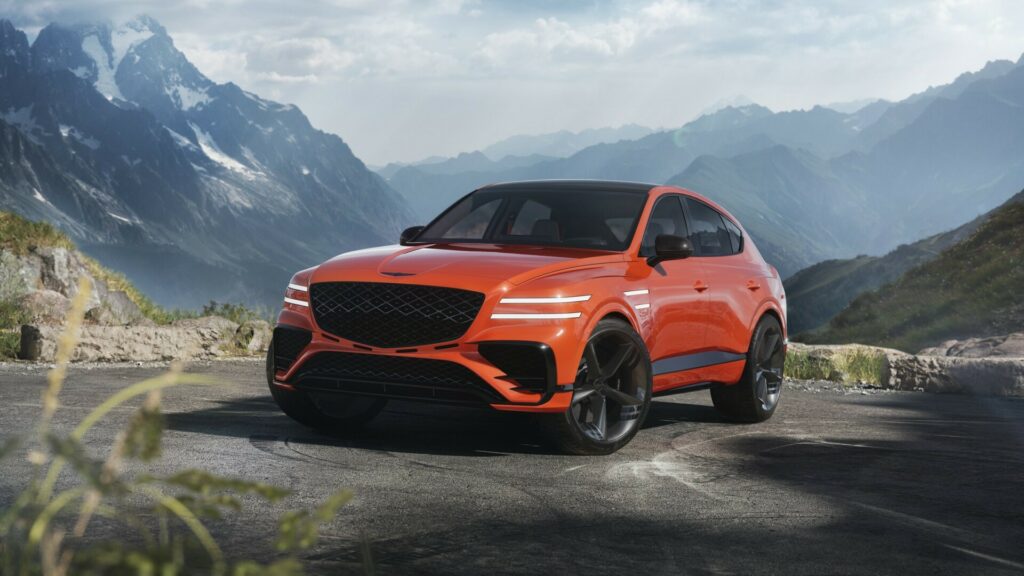
Besides all the EV-focused announcements, Hyundai revealed it will halt production at a Chinese plant later this year. This follows the sale of a plant in 2021 and the shutdown of another in 2022.
The plant will eventually be sold and Hyundai said they’ll slash their Chinese lineup to eight different models. The automaker plans to focus on SUVs, the N performance sub-brand, and Genesis. This is part of a larger effort to turnaround operations by improving its brand image and profitability in the country.
In other news, the automaker isn’t giving up on hydrogen and announced plans to present its “hydrogen business vision and strategy” at 2024 CES.




